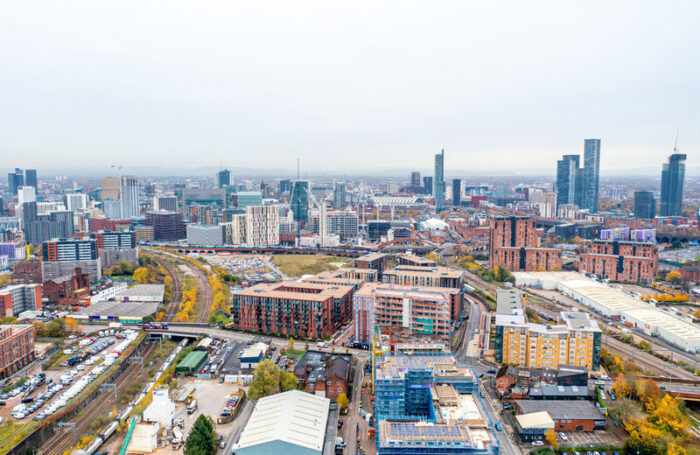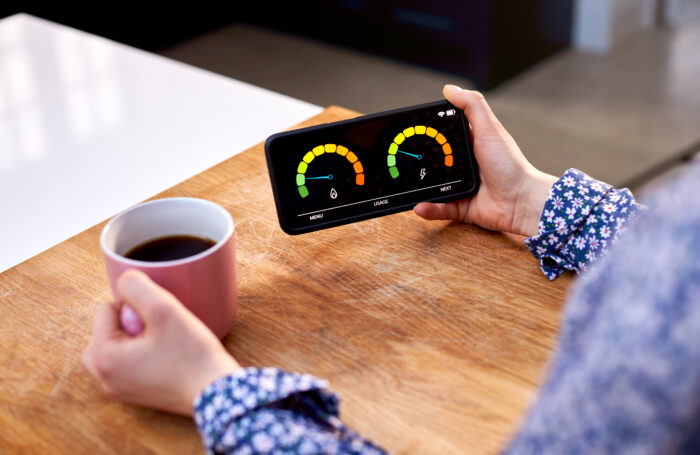By 2028, the UK Government expect annual deployment of heat pumps to reach at least 600,000 a year. Here in Greater Manchester, it’s expected that 1 million heat pumps will need to be installed to reach our 2038 carbon neutrality target.
On Tuesday 29th April, Octopus Energy hosted planning officers from the 10 local authorities for a heat pump lunch and learn, in collaboration with Microgeneration Certification Scheme (MCS), the UK’s quality mark for small-scale renewable technologies, like heat pumps.
Until recently, planning restrictions and guidance around heat pumps were causing additional costs and delays for some homes looking to switch to renewable heating. With the heat pump-specific permitted development rights being updated and MCS guidance on noise assessments changing, MCS joined us for the workshop too. They explained the updates, with visual examples of what this would mean for the planning application process and how these changes will impact retrofit works and new developments coming forward.
Lucy McKenzie, Head of Technical at MCS, said:
“These changes are an important step in supporting the uptake of heat pumps. It’s a welcome move for industry and will enable installers to deliver low-carbon heating solutions into homes.”
The session took place at Kraken’s Tech Centre in central Manchester. The tech centre is used to test the latest green technologies such as heat pumps, EVs, solar panels and home batteries.
It was a great opportunity to see the tech in action, discuss the latest developments in heat pumps and planning, share best practice and work to unlock common barriers to heat pump deployment.
Octopus said:
“There’s real momentum building behind the push for cleaner heat, and it’s important the planning process keeps up with this. Air-source heat pumps give you comfortable, consistent heating and hot water but with less energy, less carbon and typically a longer life than a gas boiler.
One of the most common misconceptions about heat pumps is that they create noise. While they do generate some noise, the sound they give off is of a similar level to other household appliances, such as a fridge. So, whilst a heat pump is not silent, you’re unlikely to notice any disruption from the sound they generate.
The impact of heat pumps in advancing environmental goals, making energy bills cheaper and creating green jobs makes them an essential component of a sustainable and prosperous future.”
We are already seeing the impact sessions like this can have. Planners who attended the event have been engaging with their wider teams around heat pumps and planning to look at how processes could be improved. Further sessions are now being arranged for planning teams in London to discuss the updates to national policy and guidance and how the planning process can support the rollout of heat pumps.
The lunch and learn was followed by a training session, led by Levitt Bernstein and Etude, on the Places for Everyone Net Zero Guidance. This guidance explains how new homes in Greater Manchester will be designed and built to net zero standards to lower energy bills for residents. You can find out more and view the suite of guidance documents at Net Zero Design Guidance – Greater Manchester Combined Authority
More information about the changes to MCS 020 can be found on the MCS website: MCS has published an updated version of MCS 020 – MCS
Full details of the updates to Permitted Development Rights can be found at: The Town and Country Planning (General Permitted Development) (England) (Amendment) Order 2025
About Octopus
Octopus Energy Group is made up of 10 businesses spanning 6 countries, including: Octopus Energy Retail, Kraken Technologies, Octopus Energy Generation, Kraken Flex, Octopus Electric Vehicles, and the Octopus Centre for Net Zero.
Greater Manchester agreed a partnership with Octopus Energy Group in 2021, in its bid to become carbon neutral by 2038.
The agreement focuses attention on the twin themes of Science and Innovation. Through the partnership, Octopus Energy set out to create 300 high-skilled jobs, ranging from data scientists and heat pump engineers to frontline customer support.
Overall, the ambition is for Greater Manchester to become the UK’s leading Green city-region, taking a leading role at the forefront of the UK’s technological evolution by trialling and facilitating the smart and innovative new technologies that will support the country’s net zero ambitions.
About MCS
With energy costs constantly rising and climate change affecting us all – low-carbon technology has a bigger and bigger role to play in the future of UK energy. MCS are here to ensure it’s a positive one.
Working with industry, MCS define, maintain and improve quality – certifying products and installers so people can have confidence in the low-carbon technology they invest in. From solar and heat pumps to battery storage or biomass, MCS want to inspire a new generation of home-grown energy, fit for the needs of every UK home and community.



